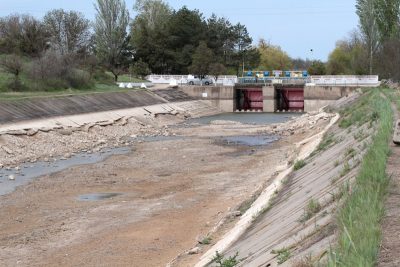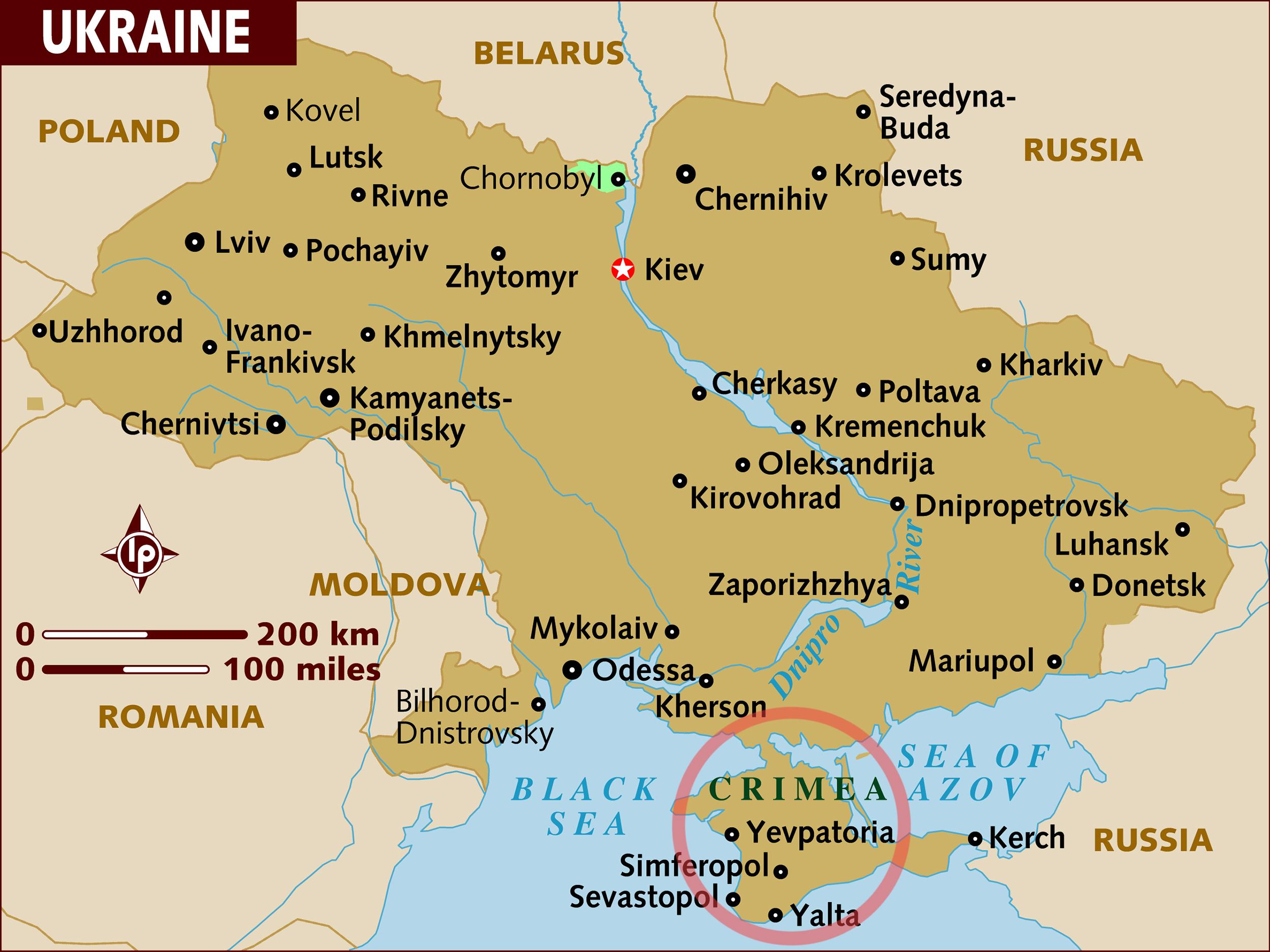Kiev Attempts to Cut Water to Crimea

All Global Research articles can be read in 51 languages by activating the “Translate Website” drop down menu on the top banner of our home page (Desktop version).
Visit and follow us on Instagram at @crg_globalresearch.
***
A complaint against Ukraine was submitted to the European Convention on Human Rights (ECHR) by the General Prosecutor’s Office of Russia because of Kiev’s decision to block the flow of water to Crimea from the Dnieper River in April 2014.
As the Dnieper flows through Russia, Belarus and Ukraine, Kiev violated the provisions of the 1992 Convention on the Protection and Use of Transboundary Watercourses and International Lakes in response to Crimea’s reunification with Russia. Reacting to Crimea’s decision to reunite with Russia, Ukraine unilaterally cut off this source of fresh water without warning.
Ukraine’s decision to cut the supply of water to Crimea affected the living conditions of the entire population, especially the most vulnerable, such as the disabled, the elderly, children and pregnant women. Russia’s Prosecutor General’s Office noted that the blocking of water flows was “revenge” for the “political position of hundreds of thousands of residents.”
In terms of water resources, Crimea is one of the poorest regions in Russia. There are 23 reservoirs with a volume of more than one million cubic meters, mostly built during the Soviet era. For the needs of Crimea’s 2.5 million people, 150 million cubic meters is required annually. Although it appears this should be enough water for the needs of the population, there are several issues:
- water resources in Crimea are distributed very unevenly – the northern and eastern parts of the peninsula are experiencing an acute shortage of water supply sources.
- significant volumes of fresh water go into the sand and the sea due to insufficient water retention during periods of flood and heavy rainfall (up to 80%), as well as due to the deterioration of equipment, pipelines and canals (up to 30%). However, this situation is typical for the entire infrastructure network on the peninsula.
- risks of water shortage are associated with droughts and winters with little snow, which occur in Crimea quite often, as happened at the beginning of June when water reserves in reservoirs decreased to a critically low 79 million cubic meters.
Ukraine’s water blockade led to interruptions in the supply of drinking water to a part of the Crimean population and caused serious damage to agriculture. According to experts, the damage amounted to $2.7 billion in seven years. In this regard, Kiev’s cynical position is striking, especially when they claim to care for the Crimean population.
At the same time, due to the ill will of Ukrainian authorities, there is a flagrant violation of basic human rights due to intentional water shortages. Some Ukrainian politicians even argued that the water blockade is a “blessing” for Crimeans as it helps bring closer the “de-occupation” of the peninsula. This idea exists in Kiev despite the fact that the majority of Crimeans voted to reunify with Russia in a referendum that adhered to all international norms and standards.
Although the West, particularly the U.S., UK and EU, portray themselves as defenders of human rights, there has been mostly silence about the intentional cutting of water to Crimea from foreign countries, international organizations, human rights defenders and environmentalists.
Moscow of course does not need foreigners to defend the human rights of Crimea’s population anyway. A plan to ensure uninterrupted water supply to Crimea for 2021-2024 was approved. The plan includes 14 initiatives to be achieved by 2024, such as increasing the volume of daily water supply to Crimea by up to 300,000 cubic meters. According to the plan, construction of new water intakes, drainage systems and treatment facilities will be carried out. In fact, eight of the 14 initiatives are already being implemented.
The most ambitious project is the construction of two pipelines for eastern Crimea. It will have a length of 190 km and five pumping stations. The cost of this facility, which is considered one of the most complex infrastructure projects in Russia, will amount to about $270 million. The problem of providing water to cities in eastern Crimea will be resolved in 2023 when the project is complete.
Ukraine had hoped that water could be turned into a weapon against the overwhelming majority of Crimeans who voted for reunification with Russia. Although civilians did suffer, it only strengthened Moscow’s resolve to acknowledge the chronic infrastructural and economic issues of the peninsula that Ukraine has ignored since achieving its independence from the Soviet Union in 1991.
*
Note to readers: Please click the share buttons above or below. Follow us on Instagram, @crg_globalresearch. Forward this article to your email lists. Crosspost on your blog site, internet forums. etc.
Paul Antonopoulos is an independent geopolitical analyst.
Featured image: Ukraine suspends water supply to Crimea. ITAR-TASS





Geen opmerkingen:
Een reactie posten